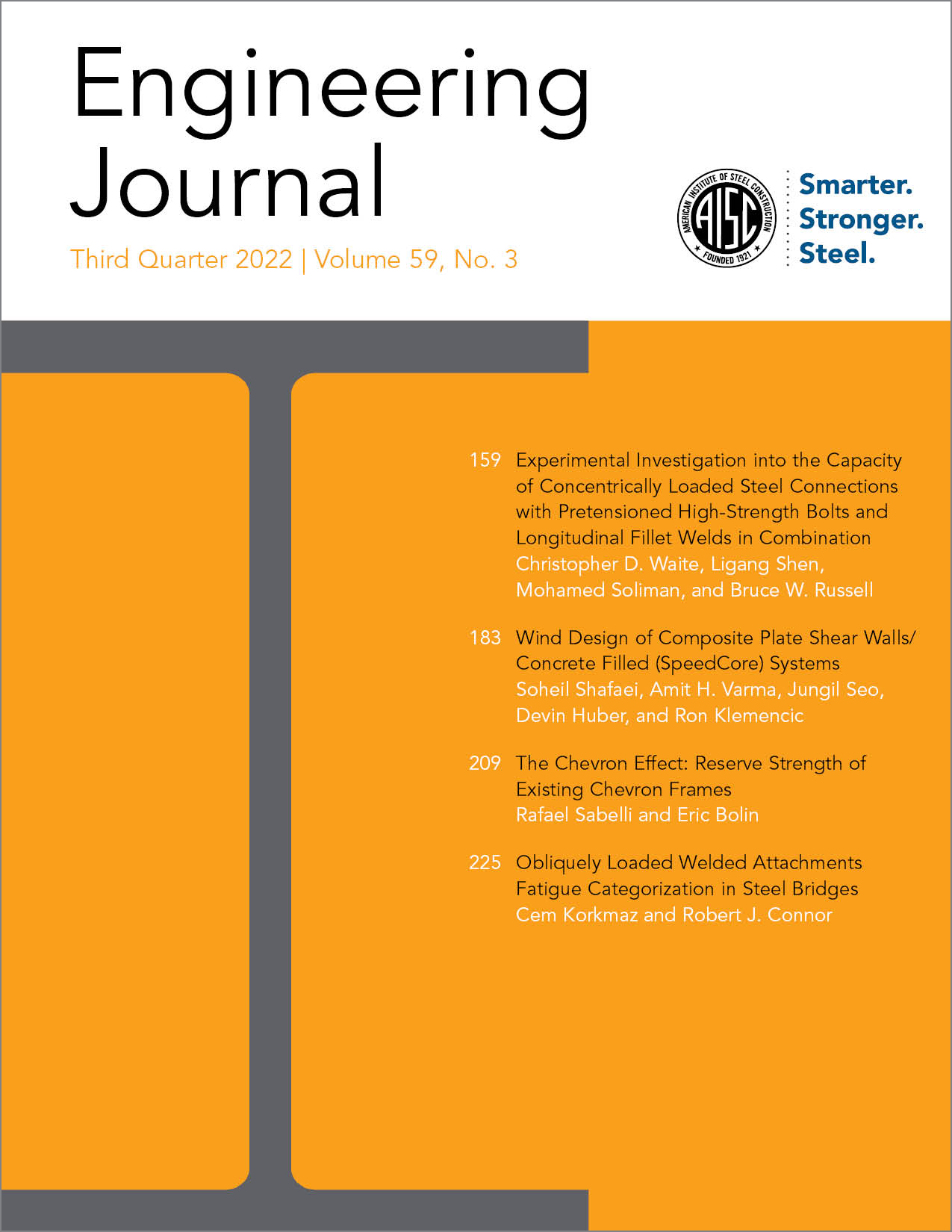Obliquely Loaded Welded Attachments Fatigue Categorization in Steel Bridges
DOI:
https://doi.org/10.62913/engj.v59i3.1190Keywords:
oblique, angular, fatigue categorization, welded attachments, transverse stiffener, local stress, hot spotAbstract
The detail category for base metal at the toe of transverse stiffener-to-flange and transverse stiffener-to-web fillet welds is defined as Category C' in the current AASHTO LRFD Bridge Design Specifications (2020, 9th Ed.) and as Category C in the AREMA (2020) Manual for Railway Engineering and the AISC Steel Construction Manual (2017, 15th Ed.). These are often referred to as short attachments due to their very short length (< 2 in.) in the direction of the primary stress range. Sometimes it is necessary to place a stiffener or a connection plate at an angle different than perpendicular to the web, such as in skewed bridges. Increases in the effective length of the stiffener along the flange in the longitudinal direction are seen as the plate is rotated away from being perpendicular to the web. The other extreme occurs when the stiffener is rotated completely 90° and is perfectly parallel to the web and the longitudinal stress range. In this instance, this is identical to the long attachment and classified as Category E (length > 4 in.). The current specifications and manuals, on the other hand, do not have classification on how to address the potential effects on fatigue performance of angles in between these two extremes. This paper summarizes finite element analysis studies based on local stress and structural hot-spot stress approaches that were conducted to investigate and classify welded attachments placed at angles other than 0° (transverse) or 90° (longitudinal) for a variety of stiffener geometries and thicknesses. This study includes new classification for incorporating the findings into the AASHTO LRFD Bridge Design Specifications, AREMA Manual for Railway Engineering, and the AISC Steel Construction Manual.

